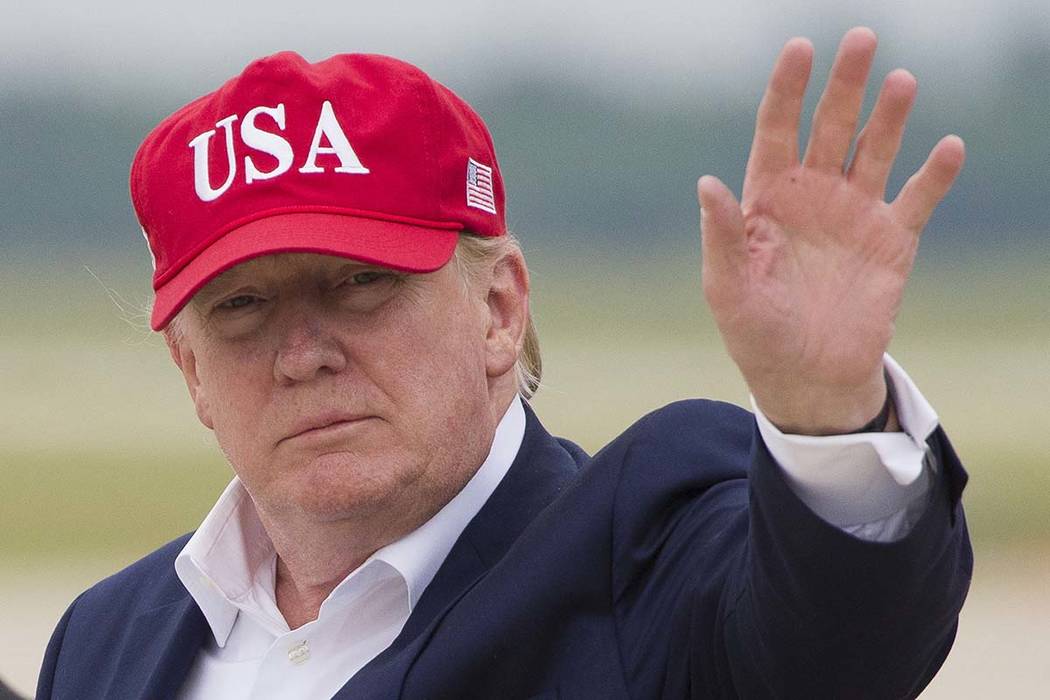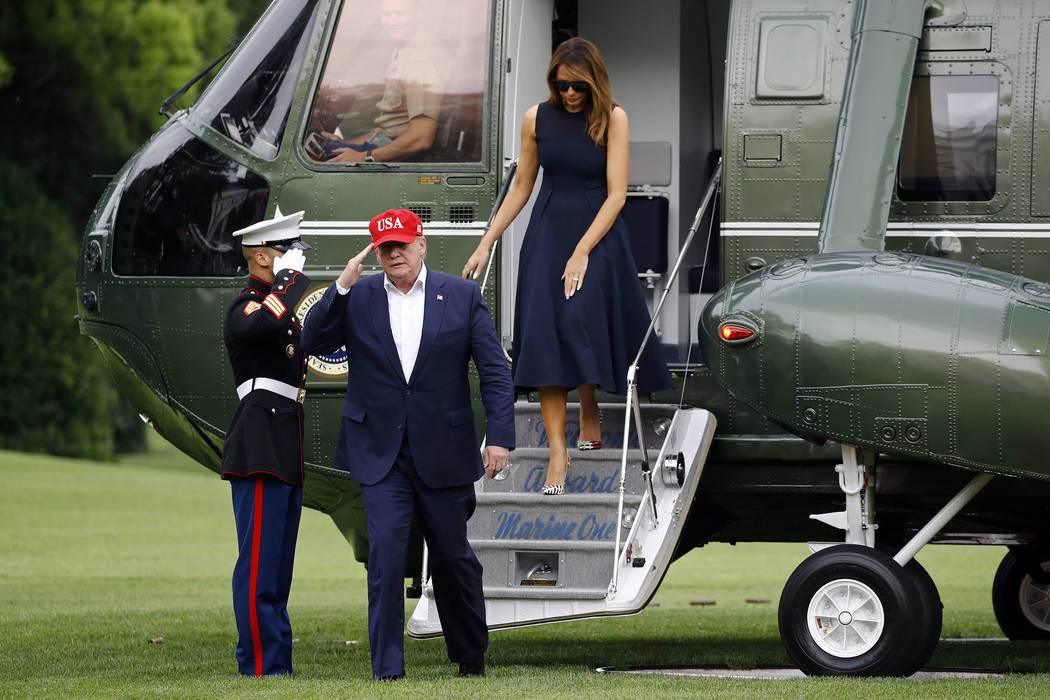Trump suspends threatened tariffs after deal reached with Mexico
WASHINGTON — Friday night President Donald Trump announced on Twitter a signed agreement with Mexico to postpone new tariffs on all Mexican imports scheduled to begin Monday in exchange for Mexico’s agreement to take strong measures to stem migration at the U.S. Mexican border. Trump said the State Department soon would release details on the new deal.
It was a clear political win for Trump who engineered a high-stakes drama that threatened to stall the Mexican and U.S. economies. On May 30, the White House released a statement that announced Trump would impose a 5-month tariff on “all goods imported from Mexico” starting on June 10. Starting on July 1, the tariffs would increase another 5 percent, and they would rise 5 percent each month until they hit a 25 percent ceiling on October 1. Trump tweeted that the new tariffs will be “hereby indefinitely suspended.”
I am pleased to inform you that The United States of America has reached a signed agreement with Mexico. The Tariffs scheduled to be implemented by the U.S. on Monday, against Mexico, are hereby indefinitely suspended. Mexico, in turn, has agreed to take strong measures to....
— Donald J. Trump (@realDonaldTrump) June 8, 2019
The new tariffs were a reaction to data that showed that despite efforts to curb migration from Central America at the Southwest border with Mexico, some 133,000 migrants were arrested at the border in May alone, including more than 11,000 unaccompanied children.
To avoid the tariffs, Acting Homeland Security Secretary Kevin McAleenan laid out three areas where Mexican officials could act to avoid tariffs – securing the border with Guatemala and migrant chokepoints, shutting down transnational criminal organizations engaged in human smuggling and trafficking and offering asylum in the “first safe country” into which migrants cross – which would be Mexico or Guatemala, not the United States.
Mexico negotiating
The announcement got the attention of Mexican President Andrés Manuel López Obrador. Mexican foreign minister Marcelo Ebrard came to Washington to negotiate with Secretary of State Mike Pompeo during Trump’s absence abroad. Later, Mexican officials quietly tried to hash out a deal with their American counterparts.
House Speaker Nancy Pelosi spoke for many Democrats when she tweeted that Trump’s “threat to place tariffs on Mexico is not rooted in wise trade policy but has more to do with bad immigration policy on his part.” Senate Minority Leader Chuck Schumer dismissed the announcement as a bluff as he scoffed at the notion Trump would go through with his threat.
Others warned that tariffs could kill the United States Mexico Canada Agreement, the new NAFTA pact Trump had negotiated with Mexico and Canada, by making it less likely that any or all of the three nations would ratify the pact.
The announcement put an end to a revolt by GOP Senators who protested that the tariffs would hurt their states’ economies and serve as an unexpected tax on their constituents. Sen. Rob Portman, R-Ohio, told CNBC he thought it “likely” Congress would vote to stop the International Emergency Economic Powers Act, which Trump cited as the basis for his decision to levy the tariffs unilaterally.
And as happens when Trump does the unexpected, other observers tried to decipher Trump’s game plan. “I think this is all a plan for the president to shake things up to get Nancy Pelosi to bring USMCA to the floor,” Fox Business Network Maria Bartiromo offered during the week. “I can’t imagine that he is actually intending to go to 25 percent with Mexico.”
A 5 percent tariff would have cost Nevadans nearly $37 million over a year, according to the U.S. Chamber of Commerce, which placed Nevada in the bottom fifth of states in terms of what the tariffs would cost residents. Texas came in first with a tab of more than $5 billion.
Contact Debra J. Saunders at dsaunders@reviewjournal.com or 202-662-7391. Follow @DebraJSaunders on Twitter.




















